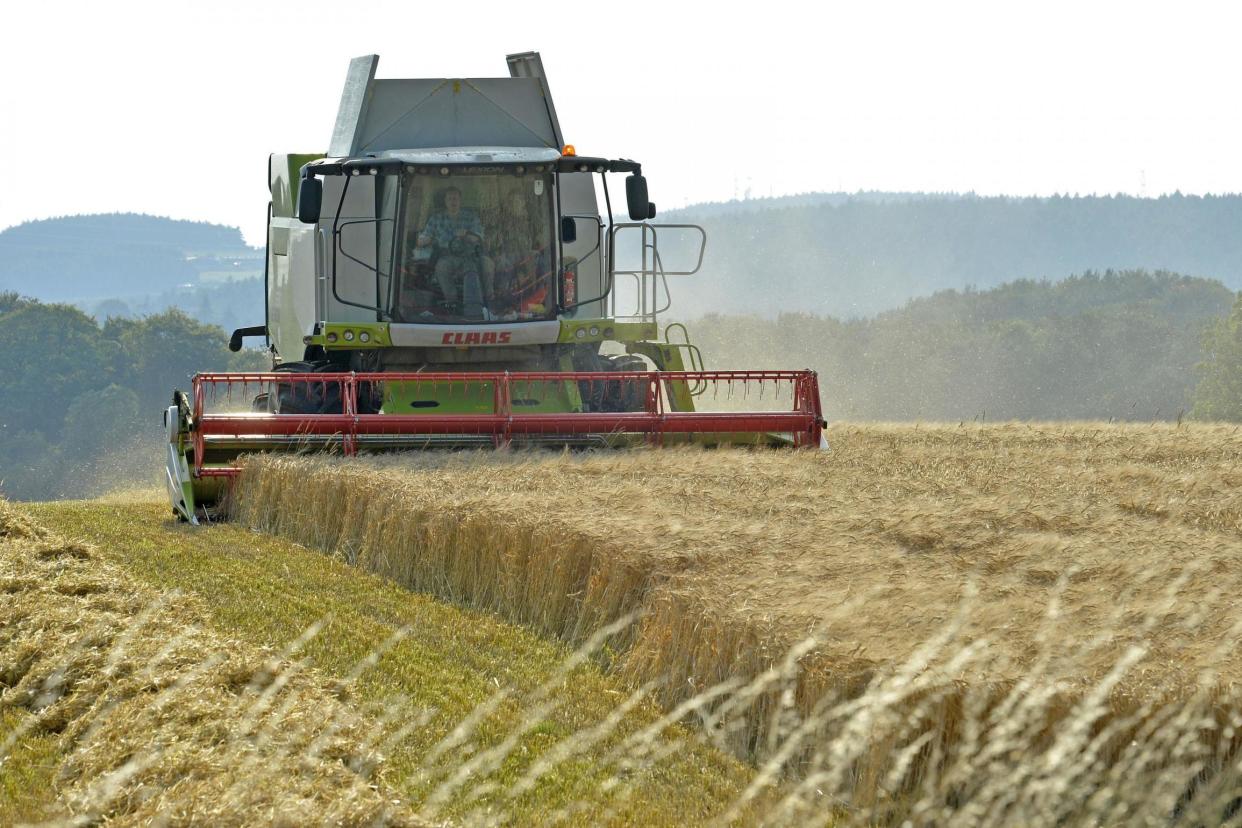Rushing Brexit trade deals risks the high quality brand of "Made in Britain"

Londoners heading out to the great British countryside for their staycations may be shocked on country walks by how desolate much of it currently looks.
Intensive farming practices mean that, after the harvest, our wheatfields can resemble a lunar landscape. Stubble and parched earth run right up to the hedgerows, with greenery and wildflowers not getting a look in.
One of the few positives possibly to emerge from Brexit has been Michael Gove’s pledge that, unshackled from Europe’s Common Agricultural Policy, we can reward farmers for using fewer chemicals and adopting more environmentally sustainable practices.
But that risks being undercut if, in our gallop to sign trade deals, we allow the import of food produced without such high standards.
For, allowing in crops grown cheaply with chemicals such as bee-killing pesticides, illegal in the UK, forces our farmers to farm more intensively to compete.
The influential Institute for Government today warns that our trade negotiators are rushing so quickly to secure trade agreements that they risk dropping the good regulatory standards that will mark out British products as being superior.
That would have an appalling long-term impact on UK industry.
Not only that, but it’s hypocritical to boast about our own high standards while allowing those with poor practices to continue selling here.
It’s not just unsustainably grown crops, or America’s famous chlorinated chickens, that we risk welcoming into our shops.
The IfG warns the US wants to have energy efficiency requirements relaxed on computer screens; to erode standards on getting chemicals approved; to scrap prohibitions from using geographical names such as “parmesan”.
Could an Iowa pig farmer soon make Melton Mowbray pork pies?
Government needs to make a far clearer statement, with agreements across government departments, of what our red lines are. That would make it harder for bigger countries to push our negotiators around during the haggling around the margins of Free Trade Agreements (where most of the bad stuff happens).
Talks should be less secretive, allowing more parliamentary scrutiny of what our negotiators are agreeing.
The pace of negotiations should be slowed until we get the groundwork right. Negotiating, as we now are, four completely new deals and 18 rollovers of existing EU deals is simply too much. Particularly as we’re still trying to reach a comprehensive settlement with the EU.
It’s understandable that a Brexiteer government wants to strike these deals quickly. It wants to tell the sceptical half of the UK: “we told you so”.
But if we agree them in haste, we will surely repent them at leisure.
Read more
MPs vote down legal bid to protect NHS in post-Brexit trade deals
MPs urge 'compromise' to accept EU standards to secure trade deal
UK eyes £1bn boost from trade deals with Australia and New Zealand
Boris won’t get trade deal unless he gives ground, warns France
UK and Japan to start negotiations over post-Brexit trade deal


